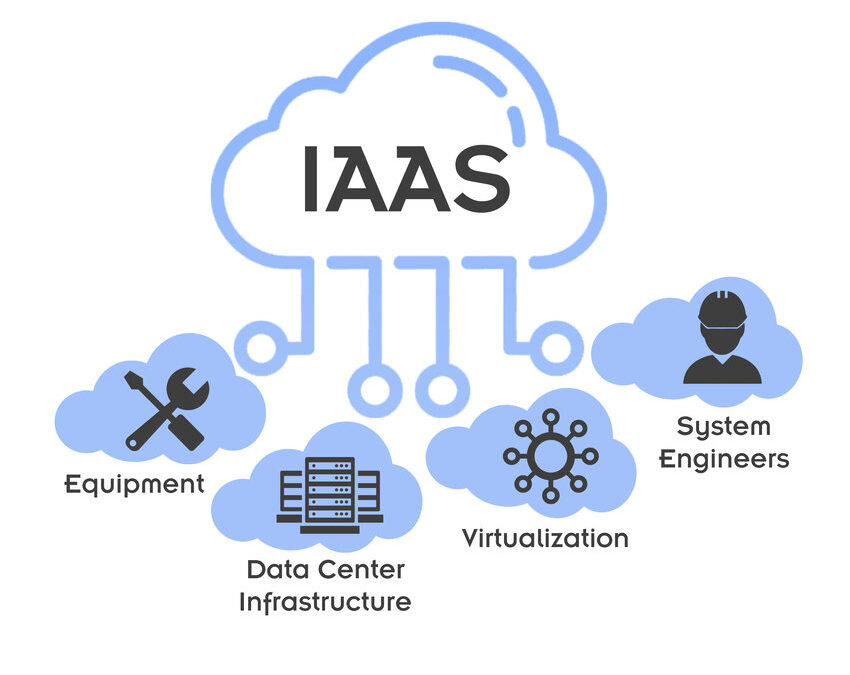In the ever-evolving landscape of technology, cloud computing has emerged as a transformative force, revolutionizing the way businesses and individuals manage, store, and process data. At the heart of this paradigm shift are the four main cloud services, each offering unique functionalities and capabilities tailored to meet diverse needs. In this blog post, we delve into these services to provide a comprehensive understanding of their significance in modern computing.
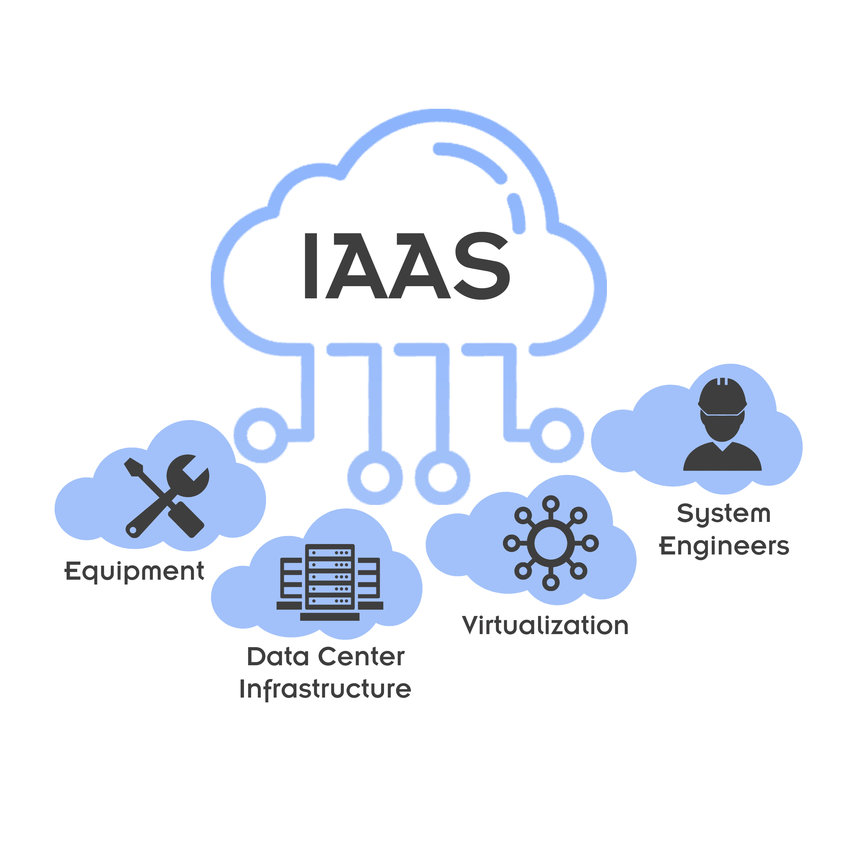
Infrastructure as a Service (IaaS)
Infrastructure as a Service (IaaS) forms the foundational layer of cloud computing, providing users with virtualized computing resources over the internet. With IaaS, businesses can rent virtual machines, storage, and networking infrastructure from cloud providers on a pay-as-you-go basis, eliminating the need for physical hardware investments and maintenance.
Key features of IaaS include:
- Scalability: IaaS allows users to scale resources up or down according to their needs, ensuring optimal performance and cost-efficiency.
- Flexibility: Users have the freedom to choose from a variety of infrastructure components, including virtual servers, storage, and networking, to build customized environments tailored to their specific requirements.
- Cost-effectiveness: By outsourcing hardware procurement and management to cloud providers, businesses can significantly reduce upfront capital expenditures and operational costs.
Popular examples of IaaS providers include Amazon Web Services (AWS), Microsoft Azure, and Google Cloud Platform (GCP), which offer a wide range of services and deployment options to cater to diverse user needs.
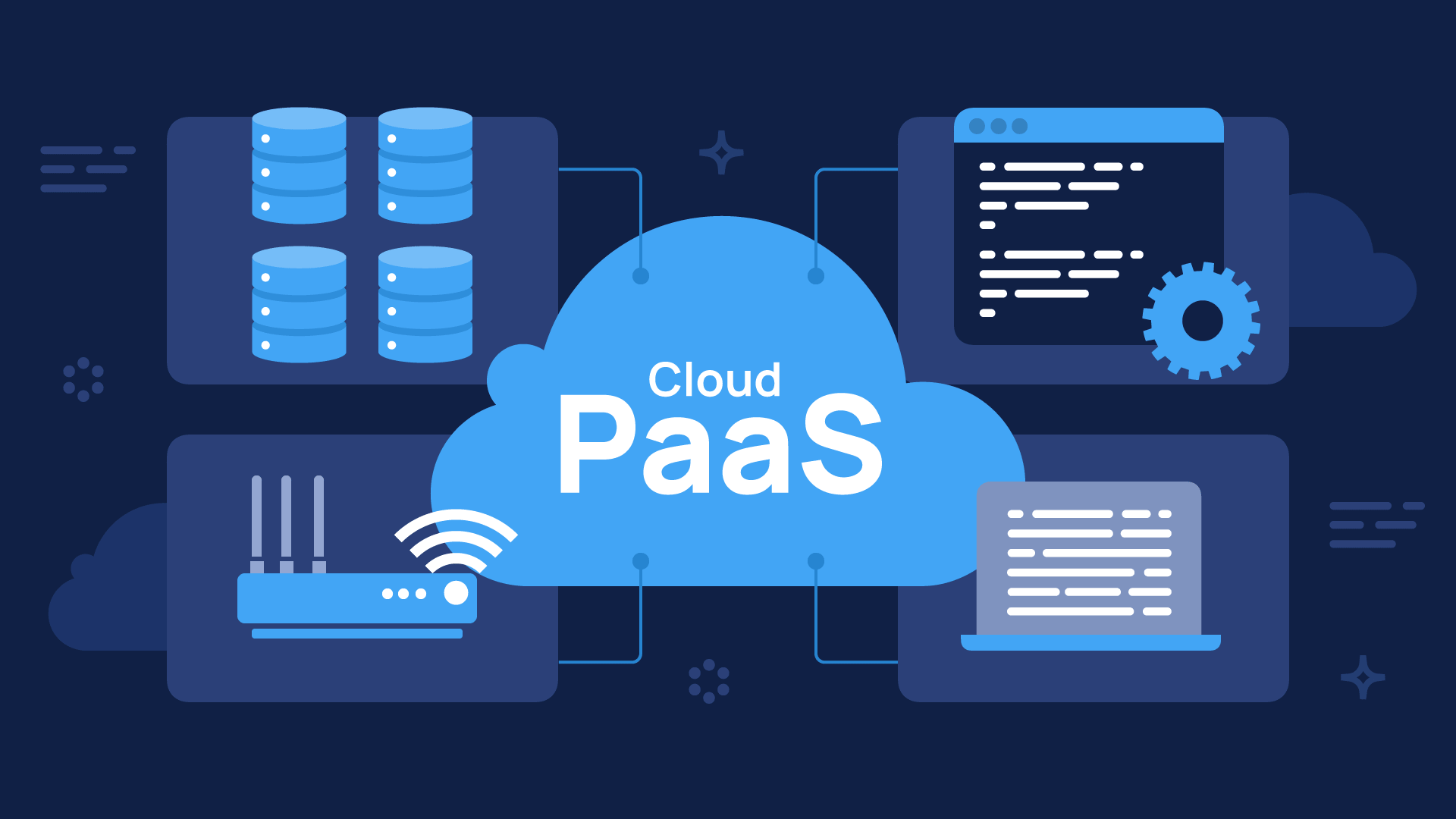
Platform as a Service (PaaS)
Platform as a Service (PaaS) takes cloud computing a step further by providing a complete development and deployment environment for applications over the internet. With PaaS, developers can focus on writing code and building applications without worrying about the underlying infrastructure, middleware, or operating system.
Key features of PaaS include:
- Rapid development: PaaS accelerates the software development lifecycle by providing pre-configured development frameworks, tools, and services, allowing developers to quickly build, test, and deploy applications.
- Simplified management: PaaS automates many aspects of application management, such as provisioning, scaling, and monitoring, streamlining operations and reducing administrative overhead.
- Collaboration and integration: PaaS fosters collaboration among development teams by providing shared development environments, version control, and integration with third-party services and APIs.
Popular PaaS offerings include Heroku, Microsoft Azure App Service, and Google App Engine, which provide a range of tools and services to support various programming languages and application architectures.
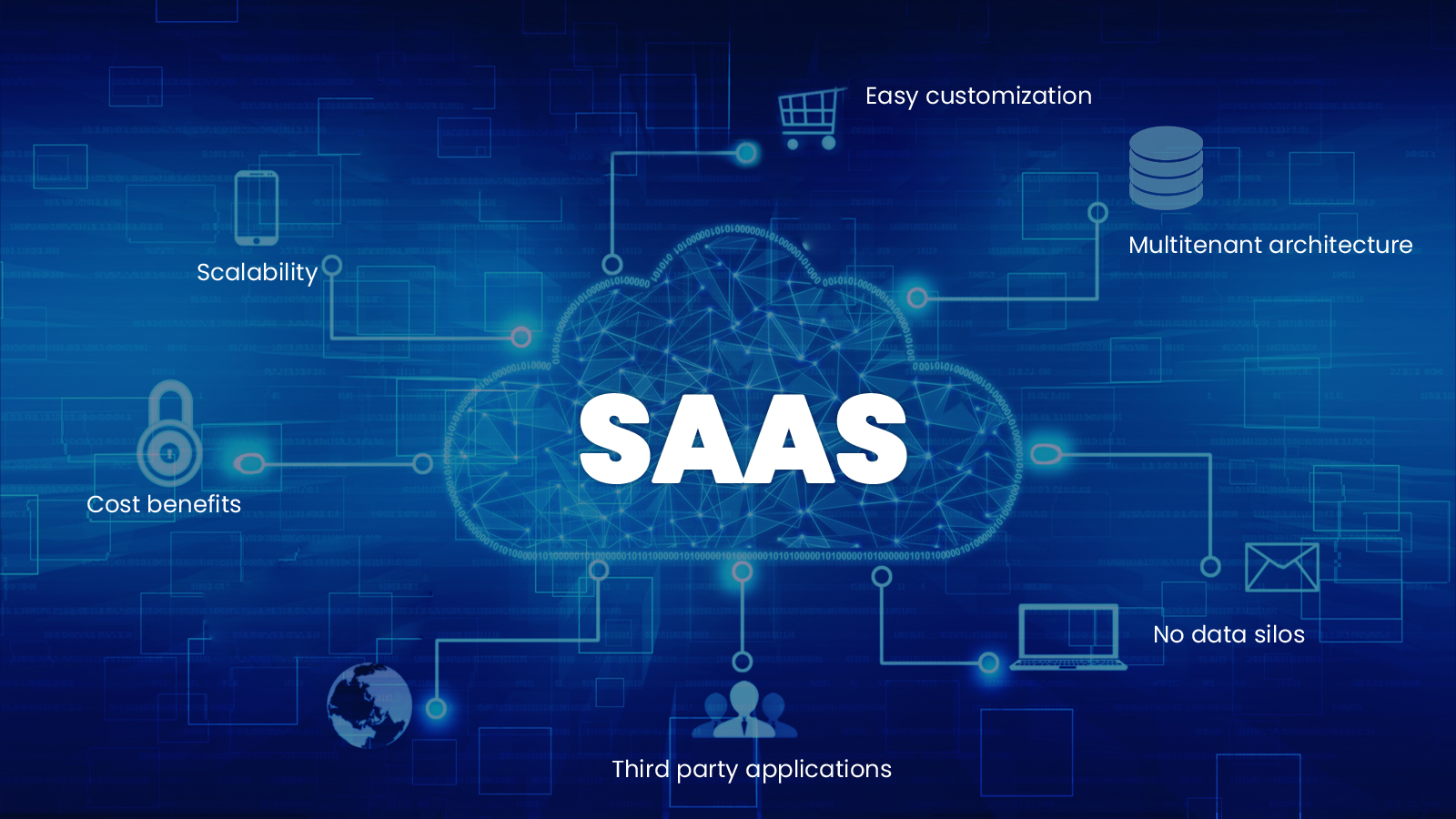
Software as a Service (SaaS)
Software as a Service (SaaS) represents the pinnacle of cloud computing, delivering fully functional applications to end-users over the internet. With SaaS, users can access and use software applications hosted in the cloud without the need for installation or maintenance on their local devices.
Key features of SaaS include:
- Accessibility: SaaS applications are accessible from any internet-enabled device, allowing users to access their data and work from anywhere, at any time.
- Scalability: SaaS offerings typically support multi-tenancy, allowing providers to scale resources dynamically to accommodate growing user bases and usage patterns.
- Automatic updates and maintenance: SaaS providers handle all aspects of software maintenance, including updates, patches, and upgrades, ensuring that users always have access to the latest features and security enhancements.
Examples of popular SaaS applications span various domains, including productivity (e.g., Microsoft Office 365, Google Workspace), customer relationship management (e.g., Salesforce), and collaboration (e.g., Slack, Zoom).
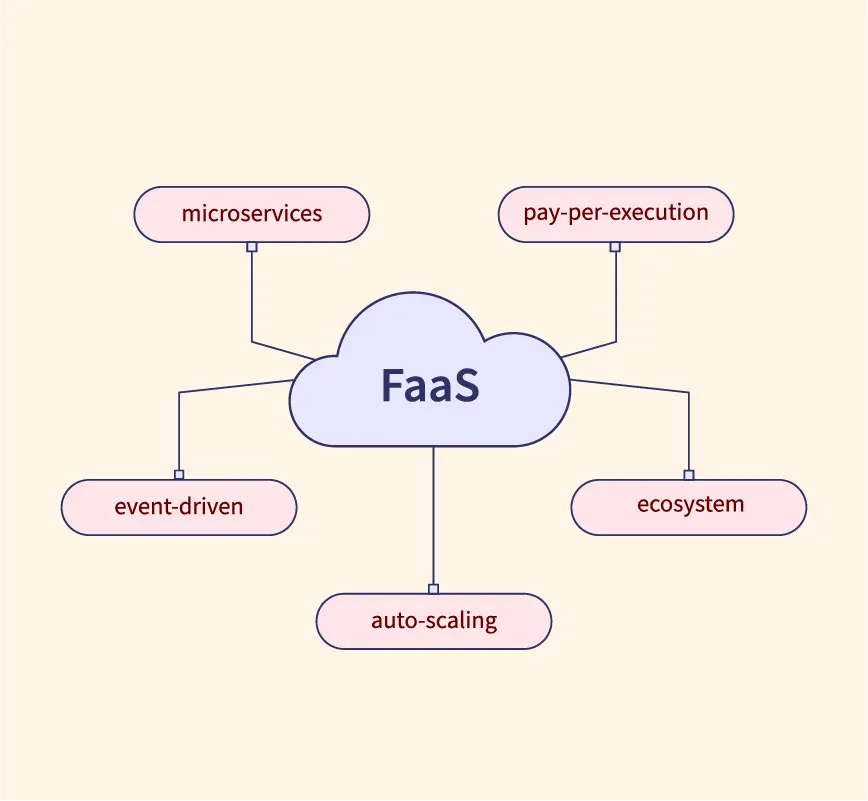
Function as a Service (FaaS)
Function as a Service (FaaS), also known as serverless computing, represents a paradigm shift in cloud computing, where developers can execute code in response to events without provisioning or managing servers. With FaaS, developers can focus on writing small, stateless functions that are triggered by specific events, such as HTTP requests or database updates, with cloud providers handling the underlying infrastructure and scaling automatically.
Key features of FaaS include:
- Event-driven architecture: FaaS enables developers to build applications using a microservices-based architecture, where individual functions perform discrete tasks in response to events, leading to greater modularity, scalability, and agility.
- Cost-efficiency: FaaS providers charge users based on actual usage, eliminating the need to pay for idle resources and reducing costs for low-traffic or intermittent workloads.
- Rapid iteration: FaaS accelerates the development and deployment of applications by enabling developers to focus on writing code without worrying about infrastructure provisioning, configuration, or management.
Popular FaaS offerings include AWS Lambda, Azure Functions, and Google Cloud Functions, which support a wide range of programming languages and integration with other cloud services and event sources.
The Four Main Cloud Services
In conclusion, the four main cloud services—Infrastructure as a Service (IaaS), Platform as a Service (PaaS), Software as a Service (SaaS), and Function as a Service (FaaS)—have revolutionized the way organizations design, develop, deploy, and manage applications and infrastructure. To leverage these advancements and propel your business forward, contact Laser Action Plus today to explore our comprehensive cloud services offerings. Unleash the power of cloud computing to drive innovation, agility, and scalability in today’s digital economy with Laser Action Plus as your trusted partner.

